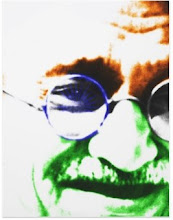The Delhi High Court has dismissed a plea under the transparency law for disclosure of selection norms and appointment process in the country's internal intelligence agency, Intelligence Bureau (IB). A bench of Justice Vipin Sanghi rejected the plea by an unsuccessful IB job aspirant, dismissing his accusation that IB selection process was plagued by corruption.
"It appears that the selection process has been conducted in a transparent manner, and there is nothing to indicate any corruption in the said process," Justice Sanghi said. The high court's order came on an appeal by IB job aspirant Ravinder Kumar Kataria, challenging the Central Information Commission's June 2011 order, dismissing his plea earlier for disclosure of selection process and norms in IB. Kataria had alleged he could not be selected for the post of Junior Intelligence Officer (JIO) in IB in 2009 due to corruption.
The court accepted the Union Home Ministry's argument that Kataria is a Scheduled Caste (SC) candidate and there were 17 posts reserved for SC category. All posts have been filled and the petitioner had scored lesser marks than the candidate last recruited in SC category, while the cut-off marks for the general category were substantially higher, the ministry told the court, seeking dismissal of Kataria's plea.
Kataria had approached the CIC after the Public Information Officer (PIO) had rejected his query saying Section 24 of the RTI Act exempts the intelligence and security agencies from the Right to Information Act's purview. The CIC had rejected Kataria argument that the information sought by him did not pertain to IB's functioning and merely pertained to the recruitment process for public employment by the agency and so the said information should be given to him.


